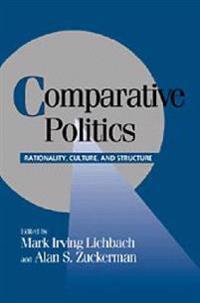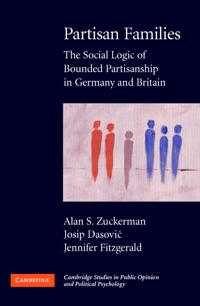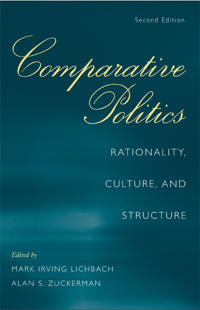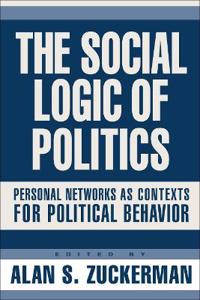Comparative Politics (Häftad)
avMark Irving Lichbach, Alan S. Zuckerman
ISBN: 9780521586689 - UTGIVEN: 199708This book reassesses the research schools in comparative politics, assessing knowledge, advancing theory, and in the end seeking to direct research in the coming years. It begins by examining the three research schools that guide comparative politics; rational choice theory, culturalist analysis, an[...]
Partisan Families (Häftad)
avAlan S. Zuckerman, Josip Dasovic, Jennifer Fitzgerald
ISBN: 9780521697187 - UTGIVEN: 200707People decide about political parties by taking into account the preferences, values, expectations, and perceptions of their family, friends, colleagues, and neighbours. As most people live with others, members of their households influence each other's political decisions. How and what they think a[...]
Comparative Politics (Häftad)
avMark Irving Lichbach, Alan S. Zuckerman
ISBN: 9780521712347 - UTGIVEN: 200902Comparative Politics: Rationality, Culture, and Structure is a completely revised second edition of the volume that guided students and scholars through the intellectual demands of comparative politics. Retaining a focus on the field's research schools, it now pays parallel attention to the pragmati[...]
The Social Logic Of Politics (Pocket)
avAlan S. (EDT) Zuckerman
ISBN: 9781592131488 - UTGIVEN: 2005-02Using classic theories to explain individuals' political decisions, this volume examines what influences these decisions. Supported by the research of the Columbia school of electoral sociology, this view is contrasted with rational choice theory and the Michigan school of electoral analysis. Writte[...]






